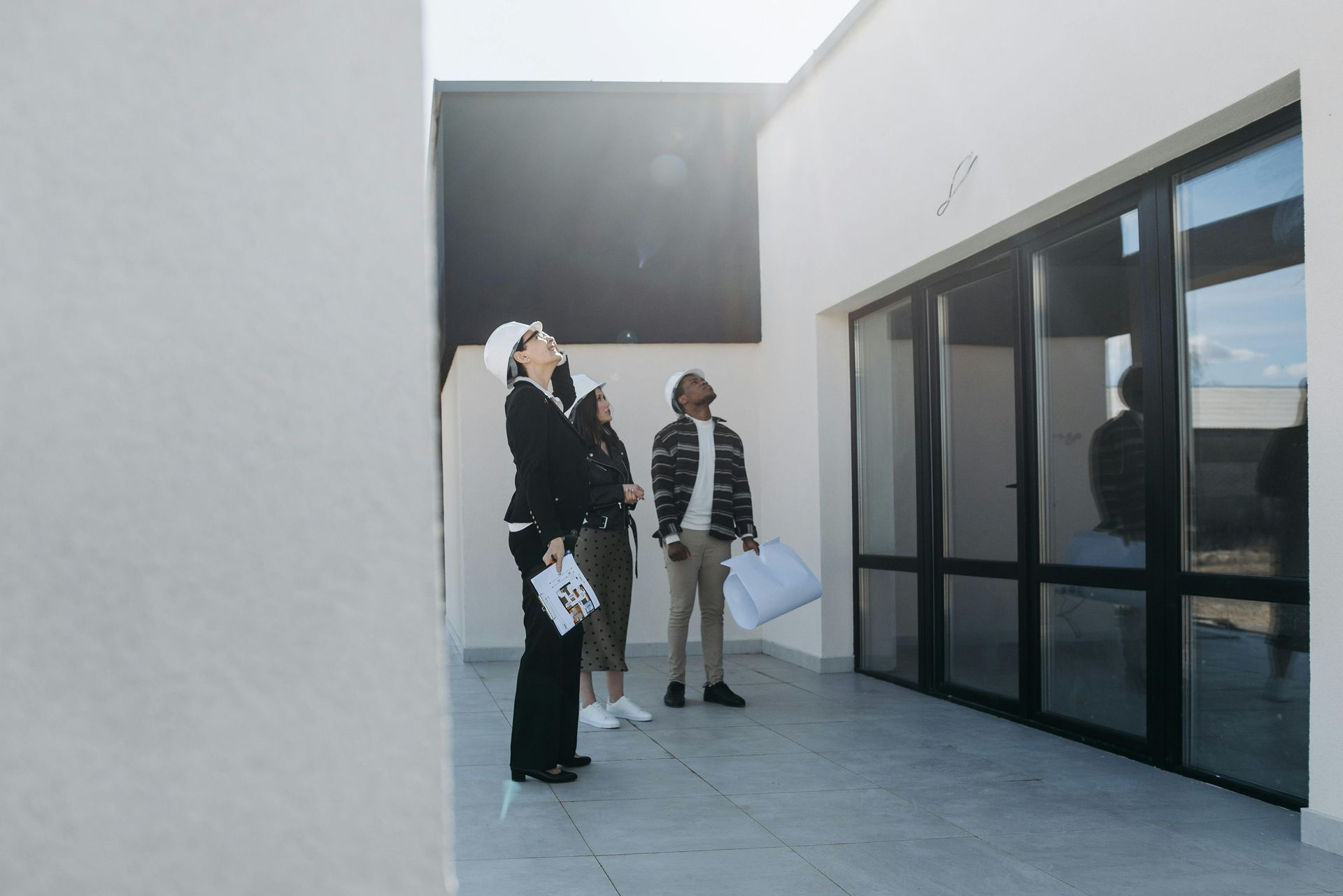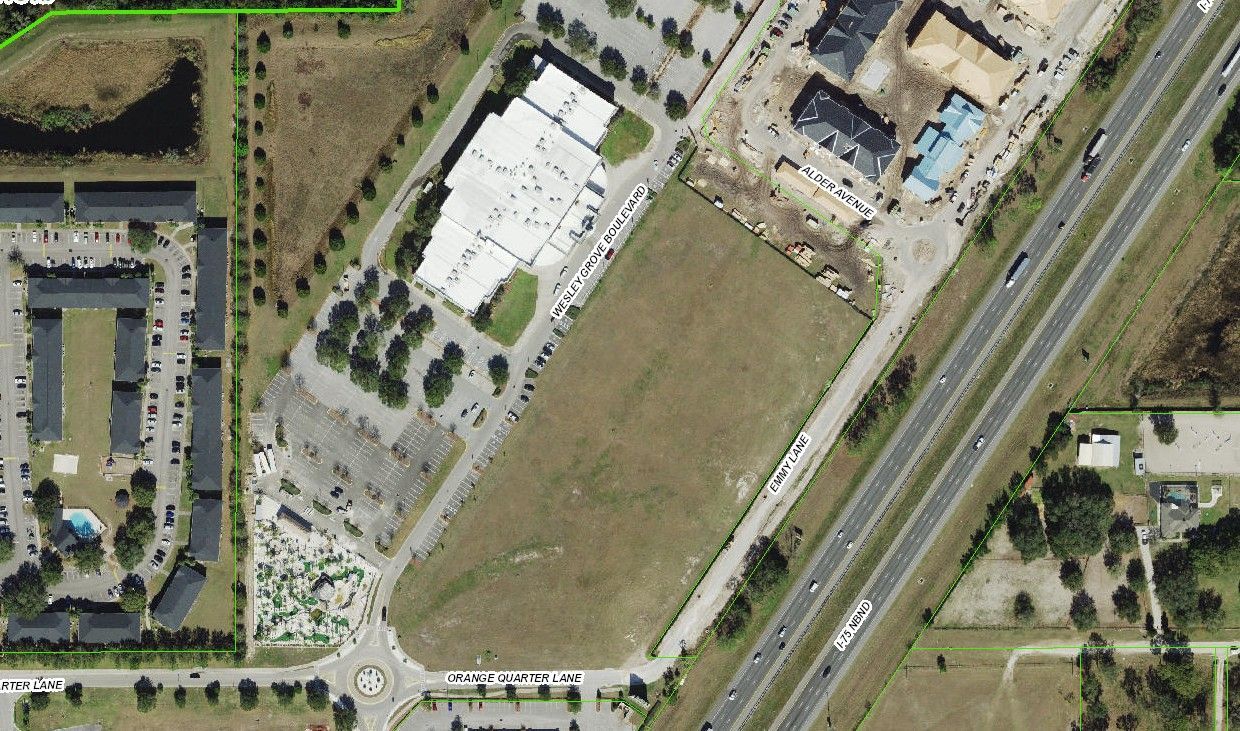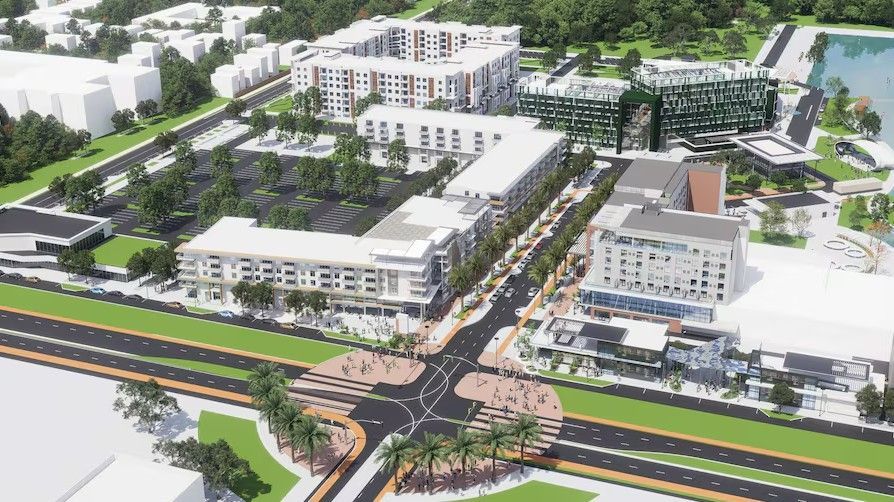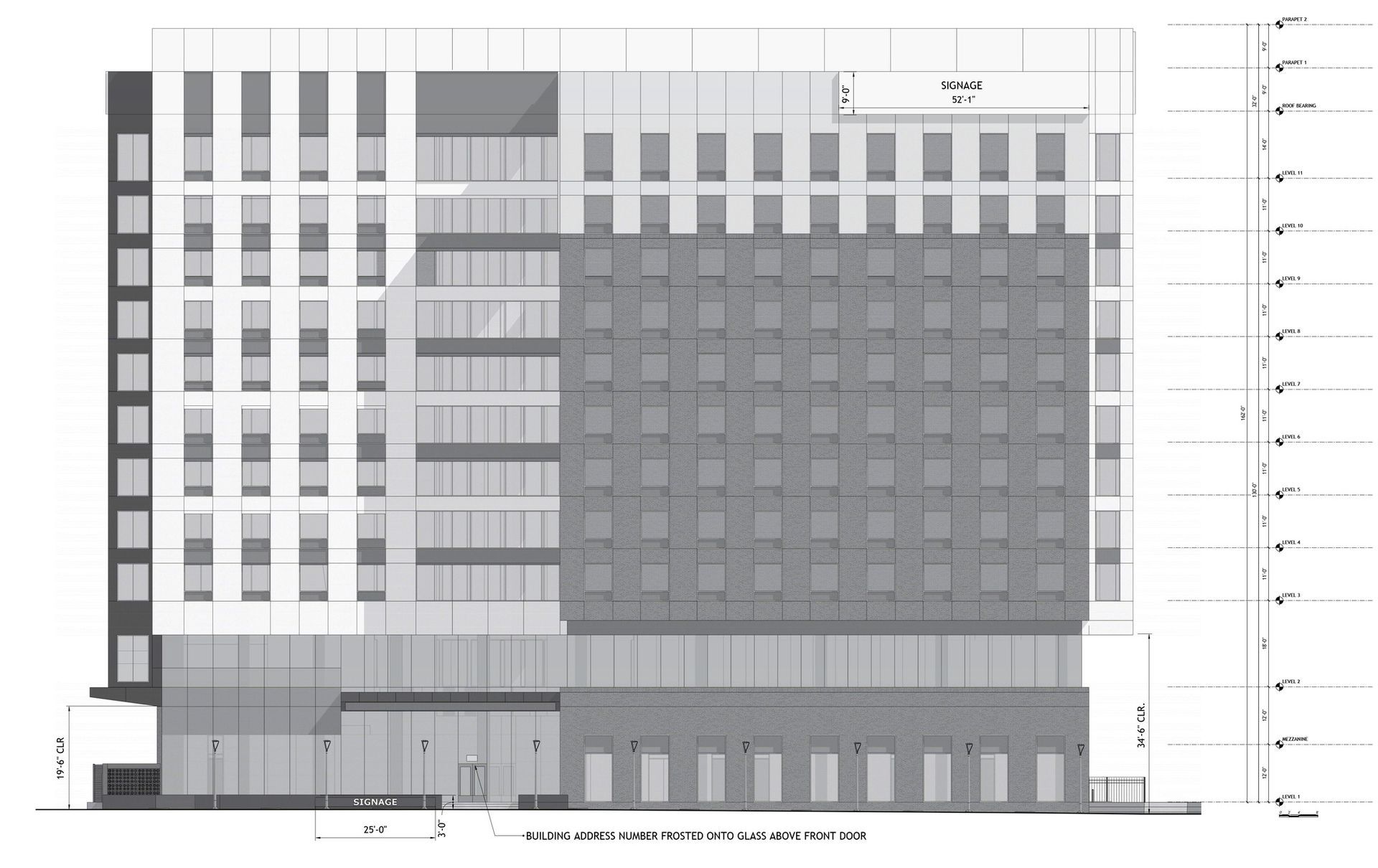Real Estate Blog
For a map of real estate projects/development as well as key intersection details/analysis

Why Hiring an MAI-Certified Appraiser Is Critical for Expert Witness Testimony in Florida Florida attorneys know that in legal disputes over real estate value, whether in eminent domain, property tax challenges, or divorce proceedings, the outcome often depends on the strength of your expert witness. Not all appraisers are created equal. In high-stakes litigation, hiring an MAI-certified appraiser can make a measurable difference in credibility, admissibility, and persuasive impact. This article explains what the MAI designation means, why it carries real weight in Florida courts, especially in the Tampa Bay area, and why Cliggitt Valuation’s MAI expertise matters in litigation. What Is an MAI Designation? MAI is the highest professional designation awarded by the Appraisal Institute. It represents advanced education, extensive experience, and demonstrated mastery of real estate valuation. To earn the MAI designation, an appraiser must: Be a State-Certified General Real Estate Appraiser Hold a bachelor’s degree Complete rigorous advanced coursework Pass comprehensive examinations Log thousands of hours of specialized appraisal experience Submit a peer-reviewed demonstration appraisal report Commit to strict ethics standards and continuing education Only a small percentage of appraisers ever achieve the MAI designation. It is widely regarded as the gold standard for commercial and complex real estate valuation. What does this mean in practice? An MAI appraiser brings a level of training and professionalism that goes far beyond basic licensure, which is especially important when valuation opinions are being challenged in court. MAI Credentials Create Immediate Courtroom Credibility When an MAI-certified appraiser testifies as an expert witness, their qualifications carry instant authority. Judges, arbitrators, and juries recognize the designation as evidence of advanced training, objectivity, and technical competence. More importantly, MAI appraisers are trained to follow established valuation methodology and professional standards. Their reports are built on accepted appraisal practices, documented analysis, and clear explanations of conclusions. This matters under Florida’s expert testimony rules, which require that opinions be based on sufficient data and reliable methods. In practical terms, MAI appraisers provide: Stronger admissibility: Their methodology aligns with what courts expect from reliable expert testimony. Greater resilience under cross-examination: Detailed support and sound methodology reduce vulnerability to attacks on credibility. Judicial confidence: Courts are more likely to rely on opinions that demonstrate recognized professional rigor. By contrast, less-qualified experts face greater risk of having their testimony limited, discounted, or excluded if their opinions appear speculative or unsupported. Why This Matters in Florida Litigation Florida’s real estate disputes often involve substantial financial consequences. Courts regularly rely on expert testimony to determine fair market value, just compensation, or equitable distribution. The quality of the appraisal expert can directly affect outcomes. Eminent Domain and Condemnation In condemnation cases, property owners and condemning authorities present competing opinions of value. These cases often involve complex issues such as highest and best use, severance damages, and partial takings. MAI appraisers are specifically trained to handle these advanced valuation concepts and to defend their conclusions under scrutiny. When one side presents an MAI-certified expert and the other does not, the difference in credibility can be decisive. Property Tax Disputes In property tax appeals, assessed values are often based on mass appraisal techniques rather than property-specific analysis. An MAI appraiser provides a detailed, individualized valuation supported by market data, adjustments, and professional methodology. This can be critical when challenging county assessments before value adjustment boards or in court. In fast-growing and diverse markets like Hillsborough, Pinellas, Pasco, and surrounding counties, accurate and defensible valuation is essential. Divorce and Equitable Distribution In divorce proceedings, courts rely on expert appraisals to determine the value of marital real estate. While property owners may testify to value, courts give far more weight to professionally supported opinions. MAI appraisers bring objectivity, technical rigor, and credibility to property valuations, helping ensure fair and defensible outcomes. When complex assets or income-producing properties are involved, an MAI’s experience with advanced valuation methods becomes especially important. MAI vs. Non-Designated Appraisers While any certified appraiser may legally testify, the difference between an MAI appraiser and a minimally qualified expert is significant: Advanced Training MAI appraisers complete extensive coursework in income capitalization, market analysis, feasibility studies, and complex valuation techniques. Many non-designated appraisers simply do not have this depth of education. Experience in Complex Assignments MAI designation requires thousands of hours of high-level appraisal work. These professionals regularly handle litigation-related assignments, specialized properties, and contested valuations. Professional Credibility Courts, attorneys, lenders, and government agencies recognize the MAI as a mark of excellence. This recognition can insulate your expert from credibility attacks. Stronger Documentation and Methodology MAI appraisers are trained to anticipate legal scrutiny. Their reports typically include detailed support for assumptions, adjustments, and conclusions, minimizing opportunities for opposing counsel to undermine the analysis. Ethics and Objectivity MAI designees adhere to strict professional and ethical standards. Their role is to present independent, unbiased opinions, which is exactly what courts expect from expert witnesses. In litigation, where methodology and credibility are constantly challenged, these differences matter. Tampa Bay and Local Court Perspective The Tampa Bay legal community routinely relies on MAI appraisers for significant valuation disputes. In Hillsborough, Pinellas, Pasco, Polk, and surrounding counties, MAI appraisers are often called upon in cases involving: Commercial development and redevelopment Waterfront and high-value residential properties Industrial and mixed-use assets Government takings and right-of-way acquisitions Local judges and boards are accustomed to hearing testimony from MAI professionals and understand the weight the designation carries. When both sides present experts, the court often gravitates toward the testimony that demonstrates superior credentials, clearer methodology, and stronger support. Using an MAI-certified appraiser is not about formality. It is about ensuring that the valuation presented is taken seriously and withstands legal scrutiny. Why Cliggitt Valuation’s MAI Expertise Matters Cliggitt Valuation brings MAI-certified expertise directly into the litigation environment. Our founder, Michael R. Cliggitt, MAI, MRICS, CCIM, has extensive experience providing expert testimony and valuation support in: Eminent domain and condemnation cases Property tax appeals Divorce and equitable distribution matters Estate disputes and complex valuation assignments Our work is designed for the courtroom. We focus on: Clear, defensible valuation methodology Thorough documentation and analysis Preparation for cross-examination Professional, objective testimony W e understand how valuation fits into legal strategy. Our reports are built not just to determine value, but to support your case under evidentiary standards and judicial review. When real estate value is at the center of a legal dispute, the quality of your expert witness can define the outcome. An MAI-certified appraiser provides unmatched credibility, technical expertise, and courtroom readiness. In Florida, and especially in the Tampa Bay market, hiring an MAI is not simply a best practice. It is a strategic advantage. At Cliggitt Valuation, our MAI-designated expertise ensures that your valuation evidence is clear, defensible, and respected by courts, boards, and opposing counsel alike. If you are preparing for litigation involving eminent domain, property tax disputes, or divorce-related valuation issues, we are ready to support your case with authoritative, professional appraisal services.

Florida’s commercial real estate market has been anything but predictable over the past few years. What started as a post-pandemic surge driven by population growth and historically low interest rates has shifted into a more cautious environment shaped by higher borrowing costs and economic uncertainty. Rising interest rates and inflation have made both investors and lenders more selective, and pricing commercial properties today requires far more nuance than it did just a few years ago. At the same time, Florida faces added pressure from rising insurance costs tied to hurricane risk, which can significantly impact property operating expenses and overall cash flow. In conditions like these, obtaining a professional commercial real estate appraisal is more important than ever. An appraisal offers a data-driven, unbiased opinion of value that helps cut through market noise and uncertainty. It serves as a reliable reference point when conditions are changing quickly and assumptions can no longer be taken at face value. This blog explores why appraisals play such a critical role during periods of economic uncertainty. Economic uncertainty has affected each segment of Florida’s commercial real estate market differently. Understanding how these shifts play out across property types is key to understanding why accurate, up-to-date appraisals matter more than ever. Interest Rates and Financing Pressure The rapid rise in interest rates since 2022 continues to ripple through Florida’s commercial property values. Because many commercial loan rates are tied to broader market benchmarks, higher rates have increased borrowing costs and narrowed the spread between investor returns and cap rates. This compression directly impacts valuations. As a result, buyers have become more cautious, and many property owners have delayed selling, waiting for more favorable conditions. Transaction volume has slowed as buyers hesitate to overpay and sellers resist adjusting expectations. In this environment, determining a realistic, supportable value is more challenging than it was during the post-pandemic boom. A current appraisal becomes especially important because it provides an objective benchmark in a market where pricing signals are no longer straightforward. Insurance Costs and Climate Risk Florida’s exposure to hurricanes and other climate-related risks has added another layer of complexity. Insurance premiums have risen sharply over the past few years, often outpacing rent growth. In coastal and high-risk areas especially, insurance expenses can significantly erode net operating income and, in turn, property value. For example, an investor who purchased a multifamily property in 2021 may now be facing dramatically higher insurance costs in 2024 or 2025, reducing profitability even if rents have increased modestly. These changing expense structures must be reflected in valuation. Without an updated appraisal, owners and lenders may be relying on outdated assumptions that no longer reflect a property’s true financial performance. A well-supported appraisal accounts for current operating realities and helps measure value based on risk-adjusted income rather than past conditions. Diverging Performance Across Property Types Unlike earlier years when rising demand lifted nearly all property types, Florida’s commercial sectors are no longer moving in lockstep. Performance varies widely by asset class, location, and quality, making broad generalizations risky without property-specific analysis. Office properties well-located Class A buildings in strong markets have continued to attract tenants, while older or less competitive office assets face elevated vacancy and downsizing driven by hybrid and remote work trends. In some Florida markets, vacancy remains elevated as tenants reduce their footprints, while select submarkets continue to outperform. Valuing office properties today requires close attention to lease terms, tenant credit, remaining lease duration, and local demand rather than relying on regional averages. Multifamily properties experienced rapid rent growth in 2021 and 2022, but the pace has cooled. Population growth continues to support demand, yet a wave of new construction has added supply in many metro areas, placing mild pressure on rents and occupancy. At the same time, rising construction and insurance costs have slowed new development. Class A properties now face more competition, while Class B and suburban assets often attract investors seeking relative affordability. In this shifting environment, appraisals help determine whether current rents and income projections are sustainable or if concessions and slower growth are beginning to affect value. Retail properties have shown surprising resilience. Neighborhood and grocery-anchored centers in particular continue to perform well, supported by steady consumer demand and limited new construction. Vacancy rates in many Florida retail corridors remain historically low. That said, rising interest rates and operating costs still affect pricing, and tenant quality matters more than ever. Two shopping centers may appear similar on the surface, but differences in lease terms, anchor strength, and tenant stability can lead to very different valuations. An appraisal helps cut through surface-level comparisons and identify true value drivers. Industrial properties , long one of Florida’s strongest performers, are also entering a more balanced phase. Demand surged during the e-commerce boom, pushing vacancies to historic lows. That success triggered significant new development, and in many markets new supply is now coming online. As a result, vacancies are ticking up and rent growth is leveling off in certain areas. Even large institutional investors have adjusted their strategies in response. In this environment, a valuation completed a year ago may no longer reflect current conditions. Updated appraisals account for new competition, changing lease rates, and shifting supply-demand dynamics. Why This Matters The bigger picture is that Florida’s commercial real estate market is highly dynamic right now. Sales activity and investor sentiment continue to fluctuate, and headline numbers can be misleading. In some quarters, overall transaction volume may rise even as certain sectors cool and others rebound. These crosscurrents make it risky to rely on outdated assumptions or broad market averages. This is precisely why professional appraisals are so critical during periods of uncertainty. They provide a grounded, property-specific analysis based on current market data, helping owners, investors, and lenders understand where value truly stands. In a market defined by rapid change, a well-supported appraisal offers clarity, credibility, and a reliable foundation for decision-making. How Appraisals Help Stakeholders Make Informed Decisions In uncertain markets, a commercial real estate appraisal is far more than a box to check for a lender. It’s a strategic tool that helps owners, investors, and lenders make grounded decisions based on real, current market conditions. When pricing, demand, and financing are all shifting, an appraisal provides clarity and perspective. Below are some of the key ways appraisals add value during periods of economic uncertainty. Data-Driven Guidance for Investors and Owners For property owners and investors, an appraisal provides an objective benchmark at a time when intuition alone isn’t enough. During boom periods, rising demand can lift nearly all properties. Today, however, performance depends heavily on property-specific fundamentals. Appraisers analyze recent comparable sales, rent rolls, operating expenses, market supply pipelines, and local economic trends to determine what a property is truly worth right now. This helps investors avoid overpaying when acquiring assets or underpricing them when selling. For example, headlines may suggest office values are declining nationwide, but a detailed appraisal might show that a well-located office building with strong tenants and long-term leases continues to perform well. On the flip side, it may uncover vulnerabilities such as upcoming lease rollovers or softening demand that could affect value in the near term. In a market where every property behaves differently, a data-driven valuation allows owners to decide whether to hold, sell, refinance, or reposition with confidence. Supporting Financing and Lender Requirements Lenders rely heavily on appraisals, especially during volatile market cycles. When values fluctuate, banks become more conservative and place greater emphasis on collateral quality. Loan-to-value thresholds may tighten, underwriting standards may increase, and updated valuations may be required more frequently. A well-supported appraisal can play a major role in whether financing is approved, how much leverage is offered, and what loan terms are applied. This is especially important as a large volume of commercial loans approach maturity over the next few years. Owners facing refinancing need to understand whether their property’s current value can support a new loan or whether additional equity may be required. In uncertain conditions, lenders tend to “trust but verify.” A current appraisal gives them the verification they need. For borrowers, being proactive with a professional appraisal can streamline the lending process, reduce surprises late in the deal, and demonstrate a realistic understanding of both value and risk. Evaluating Risk and Shaping Strategy One of the most valuable — and often overlooked — aspects of an appraisal is its role in risk assessment. A comprehensive appraisal does more than provide a number; it explains the market context behind that number. It evaluates trends, discusses vulnerabilities, and highlights factors that could influence future performance. For example, an appraisal of a coastal multifamily property may address how rising insurance costs or higher capitalization rates could affect value. A warehouse valuation might consider new supply entering the market or changes in tenant demand. Office properties may be analyzed for lease rollover exposure, tenant credit strength, or required capital improvements. In some cases, values have shifted significantly from their pandemic-era peaks, particularly for assets that were priced aggressively during 2021 and 2022. An updated appraisal can reveal whether value has declined due to higher vacancies, increased expenses, or changing market expectations — or, alternatively, whether a property has benefited from new infrastructure, demand drivers, or improved positioning. By identifying these dynamics early, owners can adjust strategy, renegotiate leases, explore refinancing options, or restructure debt before issues become urgent. In this way, an appraisal acts as both a reality check and a planning tool, helping stakeholders make informed, forward-looking decisions. Supporting Pricing and Transaction Negotiations In volatile markets, buyers and sellers often come to the table with very different expectations. Sellers may anchor to peak pricing from prior years, while buyers factor in higher interest rates, increased risk, and softer returns. This disconnect can stall transactions. An appraisal helps bridge that gap by providing an objective, well-supported opinion of value. It grounds negotiations in market evidence rather than emotion or assumptions. As pricing expectations gradually adjust, appraisals help bring both sides closer together by clearly explaining how income, expenses, capitalization rates, and market conditions influence value. For example, a retail center owner may believe their property is worth what it sold for last year, while a buyer may require a higher cap rate due to financing costs. An appraisal can analyze current rents, lease structures, tenant strength, and operating expenses to arrive at a realistic value that reflects today’s conditions. Lenders, in turn, will rely on that appraisal rather than the contract price when determining loan terms, making it an essential piece of the transaction process. By grounding negotiations in data, appraisals reduce uncertainty, improve transparency, and increase the likelihood that deals actually close. Appraisals as a Compass in Uncertain Times When interest rates fluctuate, market conditions evolve quickly, and external pressures like insurance costs or new development reshape performance, commercial real estate decision-making becomes more complex. In this environment, an appraisal acts as a compass, helping stakeholders navigate uncertainty with clarity and confidence. Florida’s commercial real estate market in 2024 and 2025 highlights this reality. Some sectors are stabilizing or even strengthening, while others continue to adjust. Values can vary widely from one submarket or asset type to another. In this kind of landscape, professional appraisal expertise becomes especially valuable. For investors, owners, and lenders, obtaining a current appraisal is not just about meeting a requirement. It’s about understanding risk, identifying opportunity, and making informed choices backed by data. A high-quality commercial appraisal turns uncertainty into insight and helps ensure decisions are based on facts rather than assumptions. When markets are unpredictable, that clarity can make all the difference. Thank you for your interest. Have questions regarding the local market? Navigate the Real Estate Market with confidence, and contact us at Cliggitt Valuation for your appraisal, consulting, and valuation needs today. Mike Cliggitt, MAI, MRICS, CCIM 813.405.1705 | 863.661.1165 - Direct Lines findvalue@cliggitt.com Appraisal & Valuation Markets Questions about our blog? Contact our Director of Sales & Marketing, Sydney Avolt. Sydney Avolt 727.403.7418 - Direct Line sydney@cliggitt.com Sources include recent market reports, industry publications, and economic commentary from Florida-based commercial real estate firms, brokerage research teams, and national real estate news outlets covering 2024–2025 market trends. Florida Realtors | Largo Capital | Walter Duke | Largo Capital | BisNow

Pasco County commissioners have approved a major residential expansion at The Grove at Wesley Chapel, reinforcing the growth of one of the area’s most dynamic mixed-use destinations. On September 2, commissioners voted to allow developer Mark Gold to add 275 additional apartment units, nearly doubling the community’s multifamily component from 300 to 575 residences. Transforming a Former Retail Center Since acquiring The Grove in 2019, Gold has reshaped the once-struggling retail center into a thriving hub anchored by the Krate container park, boutique retailers, restaurants, and entertainment venues. The addition of new apartments is the latest step in evolving the 165-acre property into a fully integrated live-work-play environment. The approved plan calls for four-story apartment buildings, integrated pedestrian connections, and a new park. Residents will have direct access to Krate and surrounding businesses, further driving foot traffic and supporting small local enterprises. Commissioners described the project as a “classic mixed-use development” that responds to shifting consumer and tenant demand. Addressing Infrastructure and Traffic Concerns While Commissioner Jack Mariano voiced concerns over congestion along Oakley Boulevard, the main access road, other commissioners pointed to ongoing infrastructure improvements—including the widening of Old Pasco Road—as a sign that capacity is keeping pace with development. Additional pedestrian safety measures, such as new crosswalks and stop signs, were also included in the approval. Beyond Apartments: What’s Next for The Grove Although multifamily is taking the spotlight, questions remain about the use of The Grove’s 500,000 square feet of office entitlements, which have not yet been exercised. Commissioners emphasized the importance of adding employment opportunities to balance the project’s residential and retail growth. Gold has committed 1,000 square feet to a co-working space, reflecting demand from remote workers, and noted that hotel development is also underway, with letters of intent already signed for 120 rooms. Remaining entitlements include 50,000 square feet of retail and additional acreage along Old Pasco Road. A Model for Suburban Redevelopment The Grove’s continued evolution highlights a broader trend in the Tampa Bay area: the repositioning of aging retail centers into mixed-use, experience-driven destinations. As national retailers close and consumer behavior shifts, developers are integrating housing, entertainment, and co-working concepts to create sustainable long-term value. Commissioner Seth Weightman summed it up: “If it was ever an appropriate place in this county to have multifamily, this is it.” Source: Tampa Bay Times Thank you for your interest. Have questions regarding the local market? Navigate the Real Estate Market with confidence, and contact us at Cliggitt Valuation for your appraisal, consulting, and valuation needs today. Mike Cliggitt, MAI, MRICS, CCIM 813.405.1705 | 863.661.1165 - Direct Lines findvalue@cliggitt.com Appraisal & Valuation Markets Questions about our blog? Contact our Director of Sales & Marketing, Sydney Avolt. Sydney Avolt 727.403.7418 - Direct Line sydney@cliggitt.com

The University of South Florida is moving forward with plans for a major mixed-use development on its Tampa campus known as the Fletcher District. Earlier this month, the university’s trustees approved the concept, and the proposal is now heading into a 90-day review process with the City of Tampa, Hillsborough County, and other local agencies. If approved by the Board of Governors in November, construction could begin as early as next year, with a second public hearing scheduled for December 10. The first phase of the Fletcher District will transform 27 acres into a combination of student and multifamily housing, a hotel and conference center, retail and dining options, green spaces, and a new academic building. Developers may also add an additional 20 acres of cottage-style family housing depending on early demand. The project is being structured as a public-private partnership, meaning USF’s direct financial role will be limited to the academic building and its share of infrastructure improvements. This site has been the focus of debate in recent years, as nearby residents previously pushed back on development proposals tied to land along Fletcher Avenue containing wetlands and sandhill preserves. In 2023, USF President Rhea Law designated the Forest Preserve as undevelopable and closed the university golf course adjacent to it. The current plan emphasizes preservation by including wildlife buffers, native vegetation restoration, and stormwater management systems designed to complement the natural environment. A full traffic analysis is also underway to address concerns about congestion along Fletcher Avenue. Reactions to the plan have been mixed. Student leaders see the Fletcher District as a “win-win” for the university and the broader community, citing the addition of much-needed housing and economic activity. Trustees have expressed optimism about the project’s potential to enhance campus life, with suggestions for public artwork and other landmarks in the green space. Local residents, however, remain concerned about flooding, runoff, and increased traffic in the surrounding neighborhoods. Some fear the project could overwhelm nearby infrastructure, though university officials say they are committed to working within all environmental and regulatory requirements. From a valuation perspective, the Fletcher District represents a significant shift in the development landscape around USF. Large-scale mixed-use projects of this nature often set new benchmarks for rent levels, absorption rates, and market expectations. The addition of multifamily housing, hospitality space, and retail could create ripple effects across adjacent submarkets, while the public-private structure introduces unique considerations for land valuation and long-term lease structures. As details continue to emerge, appraisers, investors, and property owners alike will be watching closely to see how this project influences growth and value in the area. Thank you for your interest. Have questions regarding the local market? Navigate the Real Estate Market with confidence, and contact us at Cliggitt Valuation for your appraisal, consulting, and valuation needs today. Mike Cliggitt, MAI, MRICS, CCIM 813.405.1705 | 863.661.1165 - Direct Lines findvalue@cliggitt.com Appraisal & Valuation Markets Questions about our blog? Contact our Director of Sales & Marketing, Sydney Avolt. Sydney Avolt 727.403.7418 - Direct Line sydney@cliggitt.com

After a pause following last year’s hurricanes, the Philadelphia Phillies have resumed discussions with the City of Clearwater and Pinellas County to revisit long-term plans for upgrading their spring training complex. While no formal proposal has been submitted yet, early conversations signal a renewed interest in reaching a mutually beneficial agreement. City Manager Jennifer Poirrier, who is leading negotiations on behalf of Clearwater, says the team appears to be taking past community feedback seriously. “The Phillies organization definitely seems to have been listening,” Poirrier said, noting cautious optimism about progress. Pinellas County Administrator Barry Burton has also been involved in the meetings, given the likelihood that the Phillies will request funding from the county’s bed tax—a tax collected on short-term lodging stays. “Our role stems from the tourism impact the Phillies bring,” Burton said. “They’ve indicated that they may request funding from the bed tax, which is why we’re part of these conversations.” Back in 2019, the Phillies requested $40 million from the county’s bed tax to fund a nearly $80 million renovation of BayCare Ballpark and the nearby Carpenter Complex. That proposal didn’t gain traction, especially as the facilities—built in 2004—were significantly newer than others that had received funding, such as the Toronto Blue Jays’ Dunedin complex. Since then, project plans have remained fluid. In 2022, the Phillies unveiled a vision for a year-round player development hub, with cost estimates reaching $300 million. Later, they introduced a proposed mixed-use development—Ballpark Village—featuring residential units, retail, and dining space. The team purchased 13 acres just south of the complex for $22.5 million in November 2023 to support this expansion. Still, a more modest stadium-focused project, with a projected cost around $65 million, seems to be the first step forward. Poirrier confirmed that a scaled-down version is the likely direction in the near term but emphasized openness to more comprehensive plans in the future. “The U.S. 19 corridor holds enormous potential for economic growth,” she said. “We’re dreaming big and keeping our minds open.” The most recent meeting between city, county, and Phillies representatives took place on July 16, with another one scheduled for Friday. While Clearwater hasn’t re-engaged its former consulting firm CAA Icon—paid over $260,000 for its past role in negotiations—it may do so again down the line. From the Phillies’ side, key personnel in the discussions include Director of Florida Operations John Timberlake, BayCare Ballpark GM Doug Kemp, and CFO John Nickolas. Timberlake has not provided public comment on the meetings. City and county representatives, including Poirrier and Burton, are also planning a visit to Philadelphia in late August, a tradition where local officials are hosted by the team at Citizens Bank Park. These visits often include dinners, games, and conversations—but no negotiation meetings are currently scheduled for the trip. The Phillies have held their spring training in Clearwater since 1947 and have built deep ties to the community. In addition to their stadium investments, the team has made philanthropic contributions, including a $1 million donation toward hurricane relief last November. As of now, no final timeline has been established for the proposal or public funding request. “I think it’s safe to say everyone wants this finalized sooner rather than later,” Poirrier said, “but there’s no definitive timeframe just yet.” Source: Tampa Bay Times Thank you for your interest. Have questions regarding the local market? Navigate the Real Estate Market with confidence, and contact us at Cliggitt Valuation for your appraisal, consulting, and valuation needs today. Mike Cliggitt, MAI, MRICS, CCIM 813.405.1705 | 863.661.1165 - Direct Lines findvalue@cliggitt.com Appraisal & Valuation Markets Questions about our blog? Contact our Director of Sales & Marketing, Sydney Avolt. Sydney Avolt 727.403.7418 - Direct Line sydney@cliggitt.com
Disclaimer:
Please note that none of the information or opinions expressed herein are meant to convey nor should they be construed as real estate appraisal practice, brokerage practice, legal, tax, or financial advice.



